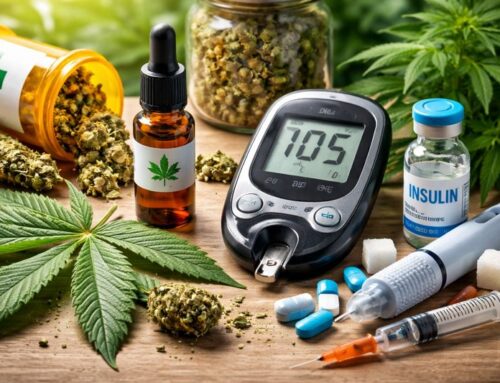While marijuana for medical use has certainly been a much-debated issue in recent years. Medical marijuana is now legal in more states, even Mississippi, and it is critical to know what it is, how it works and the advantages that come with using medical cannabis. This guide aims to educate interested individuals about medical marijuana and the most common questions or misconceptions that arise.
What is Medical Marijuana?
Medical marijuana is the term for weed and certain cannabinoids that are recommended by doctors to help treat symptoms of illness and other conditions. It is made up of cannabinoids — active compounds that interact with the endocannabinoid system in our bodies. The two major cannabinoids are as follows;
Tetrahydrocannabinol – THC: The component that produces the high of marijuana.
CBD (Cannabidiol): A non-psychotropic component associated with most of the potential therapeutic effects of marijuana, including dependence without highness.
How Does Medical Cannabis Attain the Work?
The cannabinoids found in medical marijuana work on receptors located in the body endocannabinoid system that controls various physiological processes such as pain, mood, appetite, and immune response. This response may in turn, relieve symptoms of certain medical conditions.
What Medical Marijuana May Be Used for
Conditions that medical marijuana has started to be friendlier for the treatment of, and not limited to:
- Chronic Pain – Medical marijuana is one of the most common treatments for chronic pain from diseases such as arthritis, fibromyalgia, and multiple sclerosis.
- Seizures, Epilepsy: The best evidence of the clinical efficacy of CBD is in reducing the frequency and severity of seizures in patients with epilepsy.
- Relief for cancer: Medical marijuana can ease symptoms of cancer and side effects of chemotherapy, like nausea, vomiting and pain.
If you have anxiety and depression: There are studies out there that indicate medical marijuana can actually help in managing symptoms of these disorders, but other studies prove different.
Post-Traumatic Stress Disorder (PTSD) This is among the most common uses of medical marijuana in the U.S. While many doctors are yet to prescribe medical marijuana to PTSD patients, research has shown that it can help manage symptoms effectively.
Medical Marijuana: The Legal Status
Recreational (legalization): Legal in Every State Medical: Legal in 32 states and D.C.; Illegal federally with 10 protected jurisdictions. Although medical marijuana is permitted in some U.S. states, it remains illegal under federal law. Those who wish to purchase and use this cannabinoid oil legally will need to meet requirements for their state. Patients with qualifying conditions in Mississippi can receive a Medical Marijuana Card MS to buy and use medical marijuana legally.
How to Get a MMJ Card
The following are steps that patients generally need to follow using medical marijuana legally:
- Consultation- Set up an appointment with a licensed medical marijuana doctor to review your case; and pass or fail on if you are eligible to use medical marijuana.
- Prescription: Once approved, the physician will give a prescription;
- Applying: Use the recommendation to apply for a medical marijuana card from your state medical marijuana program.
- Acceptance (When approved, you will receive your medical cannabis card and can buy from dispensaries)
Benefits and Risks
Benefits:
- Pain Relief: Good for chronic and severe pain syndromes
- Anti-inflammatory: Can aid in dealing with inflammation.
- Brain Health: Possible reductions in anxiety, PTSD, and depression.
- Benefit: Boost appetite, ideal for those with health issues that reduce appetite.
Risks:
- THC intoxicant effects: euphoria, dizziness, difficulty with coordination and impaired judgment.
- Shop Dependency: With long term use, the possibility of becoming dependent.
- Legal: Each state and Federal laws apply
- Side effects: Dry mouth, dizziness and change in the mental status.
Future of Medical Cannabis
It is an ongoing area of research since scientists are looking into the possible benefits and harms of medical marijuana. Future studies may be able to shed light on the optimal way to utilize medical marijuana therapeutically. Hopefully, the progression of cannabis science will be able to create additional means of treatment and new delivery methods for medical marijuana that further expand the potential role it can play in healthcare.
Conclusion
This might sound surprising, but medical marijuana can provide solution to a number of patient problems and for various conditions. We hope that by improving understanding of the applications, potential benefits and risks involved, patients and health care providers may make more informed decisions regarding its place in therapeutic algorithms. If you are thinking about using medical marijuana, you must consult in the first instance with a qualified healthcare professional to get an opinion on whether this is the right choice for you.
Head over to EZMedcard and find the doctors you need for Medical Marijuana Card MS in Mississippi. Your path of ramping to better health and wellness could start here.
FAQ
How does medical cannabis work?
The cannabinoids in medical marijuana interact with receptors in the body's endocannabinoid system, which regulates processes like pain, mood, appetite, and immune response. By influencing these functions, medical cannabis can alleviate symptoms associated with certain medical conditions.
What conditions can medical marijuana be used for?
Medical marijuana is commonly prescribed for chronic pain conditions such as arthritis, fibromyalgia, and multiple sclerosis. It's also used to reduce seizures in epilepsy patients, alleviate symptoms of cancer (e.g., nausea, pain), manage anxiety and depression, and treat PTSD.
What is the legal status of medical marijuana?
Medical marijuana is legal in 32 states and Washington D.C. However, it remains illegal under federal law. Patients in states where it's legal can obtain a Medical Marijuana Card (MMJ Card) after consultation with a licensed medical marijuana doctor and approval from the state's medical marijuana program.
How can I get a Medical Marijuana Card (MMJ Card)?
To get an MMJ Card, you need to:
- Schedule a consultation with a licensed medical marijuana doctor.
- Discuss your medical history and symptoms to determine eligibility.
- Receive a prescription or recommendation from the doctor.
- Apply for the MMJ Card through your state's medical marijuana program.
- Once approved, you can purchase medical marijuana from licensed dispensaries.
What are the benefits of medical marijuana?
Medical marijuana offers benefits such as pain relief for chronic conditions, anti-inflammatory effects, potential improvements in brain health (e.g., anxiety, PTSD), and appetite stimulation for patients with reduced appetite due to medical issues.
What are the risks associated with medical marijuana?
Risks include THC-induced intoxication (euphoria, impaired coordination), potential dependency with long-term use, legal considerations (varies by state and federal law), and side effects like dry mouth, dizziness, and changes in mental status.





